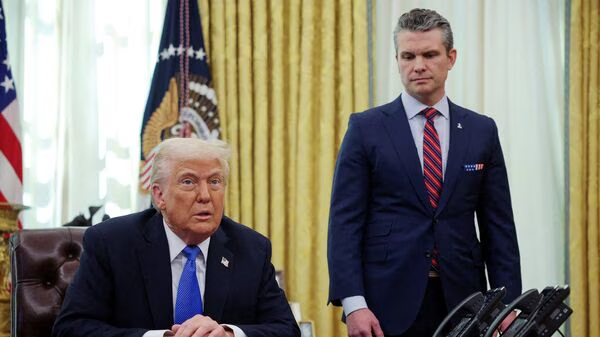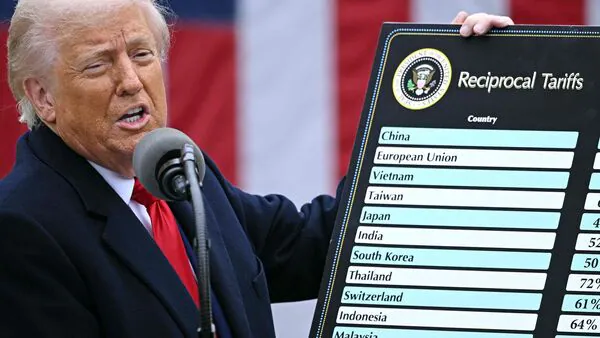
In a pivotal development that has sparked widespread debate within legal, political, and international trade circles, the White House recently issued a sharp rebuke to a U.S. trade court ruling. Labeling the decision as “judicial overreach,” the administration asserted that courts should abstain from intervening in tariff decisions. This statement underscores the evolving tension between judicial authority and executive power in matters of economic policy and global trade governance.
The Controversial Ruling
The trade court’s ruling in question revolves around a series of tariffs imposed on imported goods, which have been a cornerstone of the current administration’s economic strategy. The court ruled that specific tariff measures exceeded the executive branch’s statutory authority, essentially challenging the administration’s discretion to impose such duties. While details of the case remain subject to legal scrutiny, the judgment has intensified debates over the role of judiciary in economic policymaking.
A White House spokesperson, speaking on condition of anonymity, stated: “This ruling undermines the administration’s ability to protect domestic industries and secure fair trade practices. Courts should not dictate trade policy, which is a matter of national strategy and executive prerogative.”
The ruling has also brought to light the complexities of trade regulations and the challenges in balancing domestic economic priorities with international commitments. Legal experts suggest that the case could set a benchmark for future disputes involving the interplay between the judiciary and executive branches in trade matters. The broader implications for legal precedents and economic strategy are vast, signaling a potential shift in how trade policies are framed and contested.
Broader Implications for U.S. Trade Policy
The implications of this judicial intervention are far-reaching. At its core, the issue touches upon the constitutional separation of powers, raising questions about whether the judiciary should have a say in trade policies typically crafted and implemented by the executive branch.
Experts argue that such rulings could set precedents that limit the government’s ability to respond swiftly to international trade challenges. “If courts begin to curtail executive authority in trade matters, the United States risks losing its edge in negotiating favorable trade deals and protecting its markets,” said Dr. Eleanor Hayes, a professor of international trade law at Harvard University.
This perspective is echoed by policymakers who contend that judicial oversight may hinder the flexibility required to address dynamic global trade issues. Trade negotiations often involve rapid decision-making and strategic adjustments, which could be impeded by prolonged legal disputes and court interventions.
Conversely, proponents of the ruling argue that judicial oversight is necessary to ensure transparency and accountability in trade policy, particularly when such policies affect consumers, businesses, and international relations. Legal scholars emphasize the importance of maintaining checks and balances to prevent overreach by any branch of government, including the executive.
The White House’s Response
In response to the ruling, the administration is reportedly exploring legislative and legal avenues to reaffirm executive authority over tariff decisions. Senior officials have hinted at potential appeals to higher courts, including the Supreme Court, while simultaneously lobbying Congress to enact reforms that would clarify the executive’s powers in trade matters.
“The stakes are too high for the United States to allow judicial overreach to dictate economic strategy,” said Commerce Secretary Lydia Marshall during a press briefing. “We are committed to safeguarding the administration’s ability to act decisively in the nation’s economic interests.”
Additionally, the administration has launched a comprehensive review of existing trade policies to identify areas where legal ambiguities could be addressed. This proactive approach aims to minimize the risk of future legal challenges while reinforcing the executive’s role in trade governance.
Reactions from the Business Community
The business community has reacted with a mix of apprehension and support. Industries reliant on imported goods have welcomed the ruling, viewing it as a check against what they perceive as punitive and unwarranted tariffs. “The decision brings much-needed clarity and fairness to the trade landscape,” said Mark Donovan, CEO of Global Supply Solutions. “Unilateral tariff policies have disrupted supply chains and increased costs for businesses and consumers alike.”
For many businesses, the court’s decision represents an opportunity to reassess long-term strategies and adapt to a more predictable regulatory environment. Companies are closely monitoring the administration’s response to gauge potential impacts on trade agreements, supply chains, and market dynamics.
However, domestic manufacturers and labor unions have voiced concerns, fearing that the ruling could weaken protections for U.S. industries against foreign competition. “This is a blow to American workers and industries striving to compete against unfair trade practices,” said Karen Rodriguez, president of the United Steelworkers Union.
Rodriguez’s sentiment reflects broader anxieties among stakeholders who argue that the ruling could embolden foreign competitors to exploit gaps in U.S. trade policies. The potential for increased market penetration by foreign goods has raised alarms within industries critical to national security and economic stability.
Global Repercussions
Beyond domestic ramifications, the ruling has attracted international attention, with foreign governments and trade organizations closely monitoring the situation. China, a frequent target of U.S. tariffs, has welcomed the court’s decision, interpreting it as a signal of potential constraints on American trade policy.

“The United States must approach trade policies with greater adherence to international rules and norms,” said Zhang Wei, a spokesperson for China’s Ministry of Commerce. “Judicial oversight ensures accountability and prevents abuse of power in trade matters.”
Meanwhile, the European Union has expressed cautious optimism, viewing the ruling as a step towards a more predictable and rules-based global trading system. “This decision could pave the way for constructive dialogue on resolving trade disputes,” said Johannes Becker, a senior trade commissioner for the EU.
Other nations have also weighed in, highlighting the potential implications for their trade relationships with the United States. Emerging economies, in particular, see the ruling as an opportunity to advocate for fairer trade practices and reduced tariffs on their exports. The ripple effects of this case are likely to influence ongoing trade negotiations and multilateral agreements.
Legal and Political Analysis
The trade court’s decision has ignited a broader discourse on the intersection of law and politics in shaping economic policy. Legal analysts argue that the case exemplifies the judiciary’s role as a check on executive power, ensuring that policy decisions adhere to statutory frameworks and constitutional principles.
At the same time, political commentators caution against the potential overreach of judicial intervention in matters traditionally reserved for the executive branch. They argue that such actions could disrupt the balance of power and hinder the government’s ability to respond effectively to economic challenges.
The debate also underscores the complexities of modern governance, where legal, economic, and political considerations often intersect. As the administration seeks to navigate these challenges, the case serves as a reminder of the need for robust legal frameworks that can adapt to evolving economic realities.
The Road Ahead
As the White House navigates this complex legal and political landscape, the broader debate over the balance of power in trade policy is likely to persist. With appeals and potential legislative actions on the horizon, the outcome of this dispute will have lasting consequences for U.S. economic policy and its role in global trade.
In the meantime, businesses, policymakers, and international stakeholders will closely watch how the administration reconciles its trade objectives with the constraints imposed by judicial oversight. The case underscores the intricate interplay of law, politics, and economics in shaping the future of global commerce.
The Ripple Effect on Domestic Policy
The controversy surrounding the trade court’s ruling also sheds light on the broader implications for domestic economic policies. Tariffs, often viewed as a tool for safeguarding local industries, have become a contentious issue in the broader narrative of economic nationalism versus globalism.
Domestically, the ruling has prompted calls for greater clarity in trade legislation to prevent future conflicts between the executive and judiciary. Lawmakers from both parties are debating the need for reforms that strike a balance between empowering the executive branch and ensuring accountability through judicial oversight.
“The time has come for Congress to revisit and modernize trade laws to reflect contemporary economic realities,” said Senator James Whitaker, a leading member of the Senate Finance Committee. “Our goal should be to create a framework that supports economic growth while respecting the principles of checks and balances.”
The Public Perspective
Public opinion on the trade court’s ruling remains divided. Advocacy groups and consumer organizations have hailed the decision as a victory for accountability and fairness in trade policy. Many Americans, weary of rising costs attributed to tariffs, view the ruling as a step towards more equitable economic practices.
“Families across the country have felt the pinch of tariff-induced price hikes,” said Laura Kim, director of the Consumer Advocacy Network. “This decision offers hope for policies that prioritize the interests of everyday citizens over bureaucratic agendas.”
Conversely, proponents of robust tariff policies argue that such measures are essential for preserving the integrity of domestic industries and protecting American jobs. The ongoing debate reflects the complex interplay of economic priorities, political ideologies, and public sentiment in shaping trade policy.
Conclusion: A Defining Moment in Trade Policy
The trade court’s ruling represents a defining moment in the evolution of U.S. trade policy. As the White House grapples with the legal, political, and economic ramifications, the case highlights the challenges of governing in an interconnected and rapidly changing world.
Looking ahead, the resolution of this dispute will have far-reaching implications for the balance of power within the U.S. government, the future of global trade, and the economic well-being of American citizens. Whether through legislative reforms, judicial appeals, or policy adjustments, the path forward will shape the trajectory of U.S. trade policy for years to come.

